Arduino Reveals Portenta X8: $240 Industrial Internet of Things SBC
Arduino's Portenta X8 is an industrial grade board with nine cores to play with.
Arduino has announced the Portenta X8, not quite its first Linux-based computer (hands up if you remember the Yun) but certainly its first to combine an SBC and a microcontroller board in one Arm-based package. As spotted by CNX-Software.
The unassuming package, about the same size as a Raspberry Pi Zero, contains a quad-core ARM Cortex-A53 processor running at up to 1.8 GHz, an additional Arm Cortex-M4 core up to 400 MHz, 3D and 2D GPUs, 2GB of RAM, 16GB of eMMC storage, a USB-C port, Wi-Fi and Bluetooth, a gigabit Ethernet interface (not port), and a separate microcontroller. The smaller chip, the same as in the Portenta H7, sees an Arm Cortex-M7 core at up to 480 MHz paired with an Arm 32-bit Cortex-M4 core at up to 240 MHz with an adaptive real-time accelerator. There's 1MB of RAM and 2MB of flash storage too, along with an NXP SE050C2 crypto chip for hardware security including TPM.
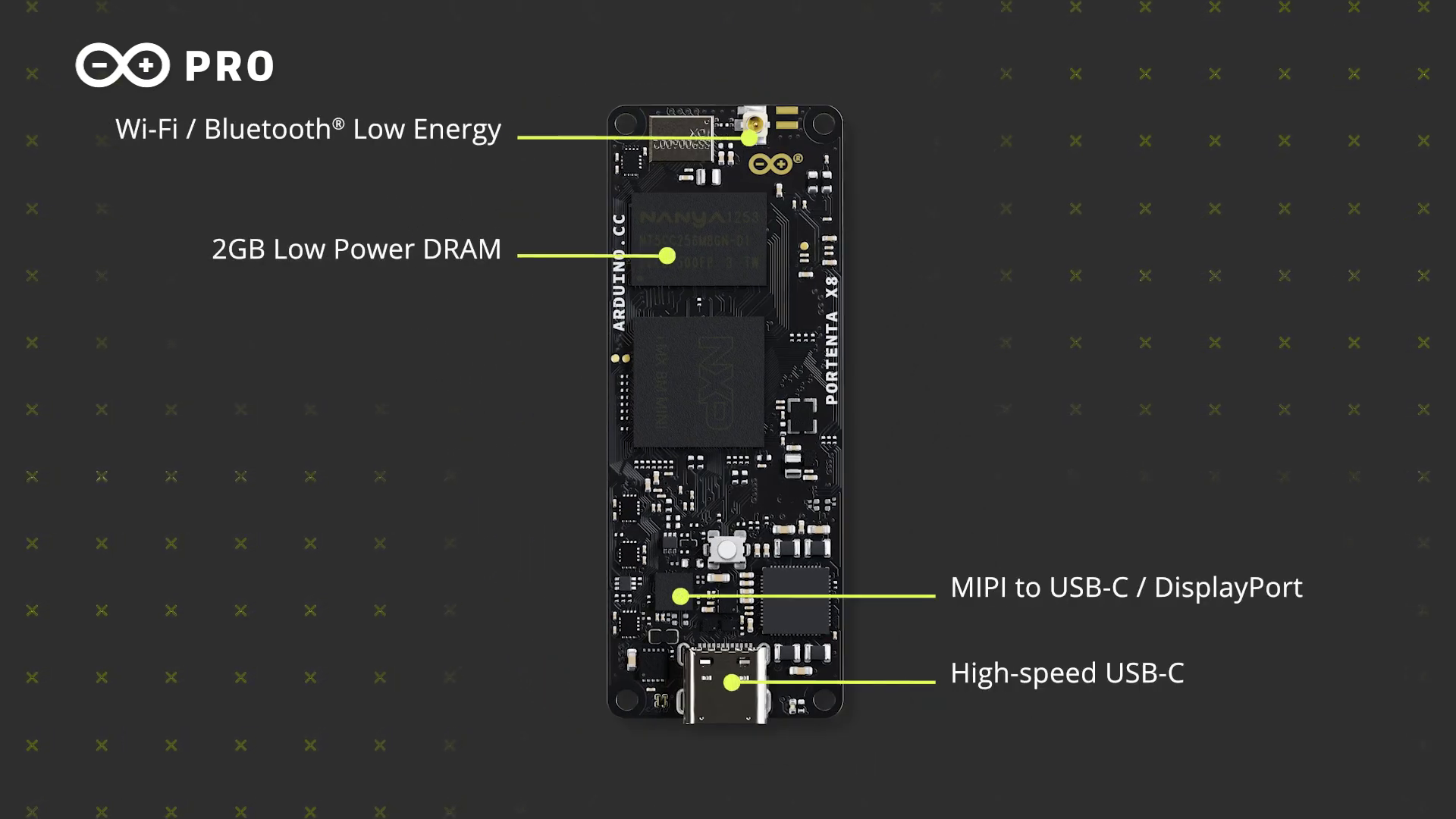
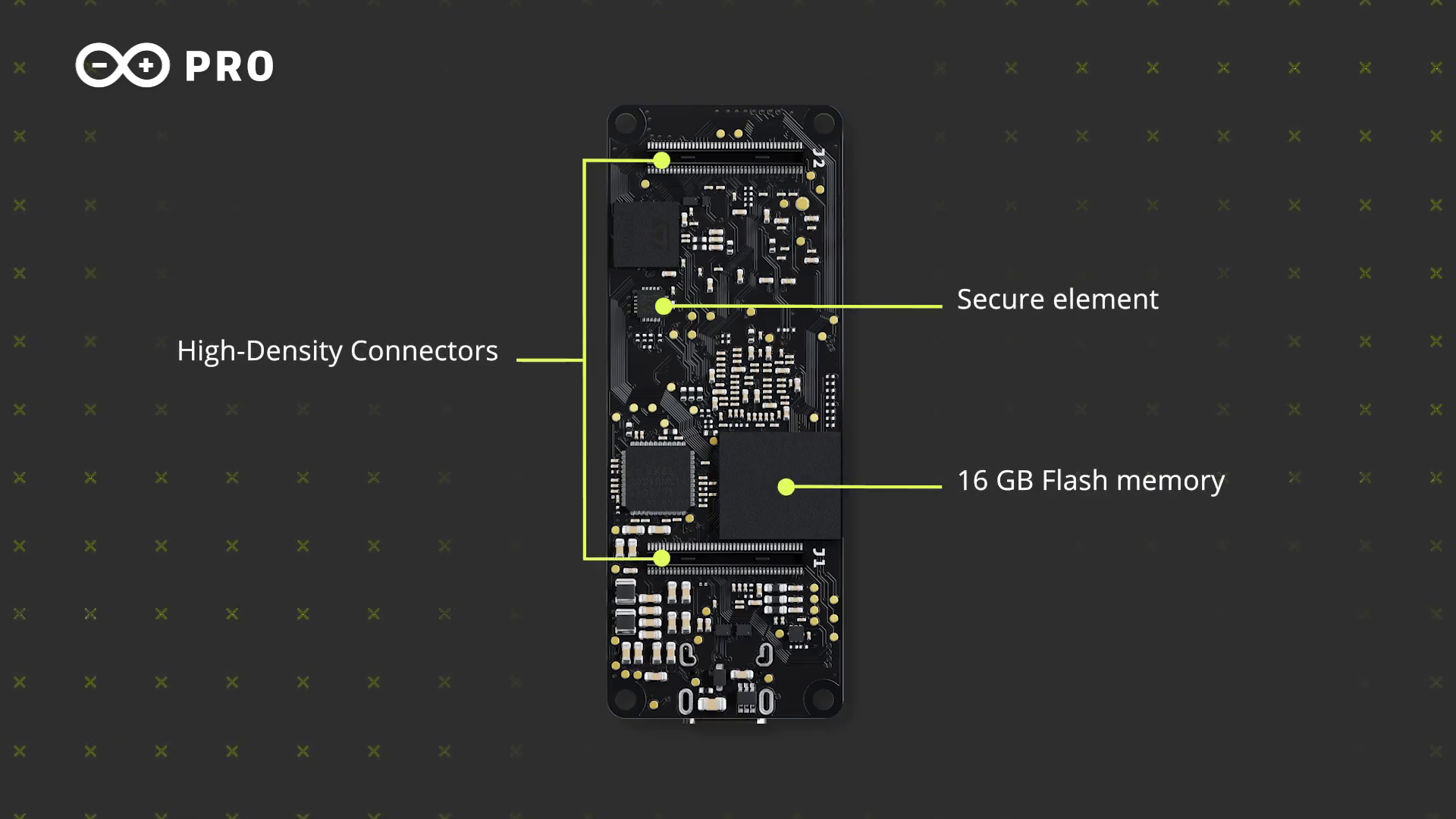
While the board itself is relatively bare, apart from a USB-C port for power, data and video out, it slots into a carrier board (similar to the Raspberry Pi Compute Module 4) to expose its IO options, many of which are packed into high-density connectors on the board itself. These include USB 3, DisplayPort, 1 lane of PCIe 2.0, Gigabit Ethernet, four UARTs, a micro SD card slot, four lanes of MIPI DSI for display connections, seven GPIO pins, and the Phillips I2S and I2C interfaces for digital audio and serial communication.
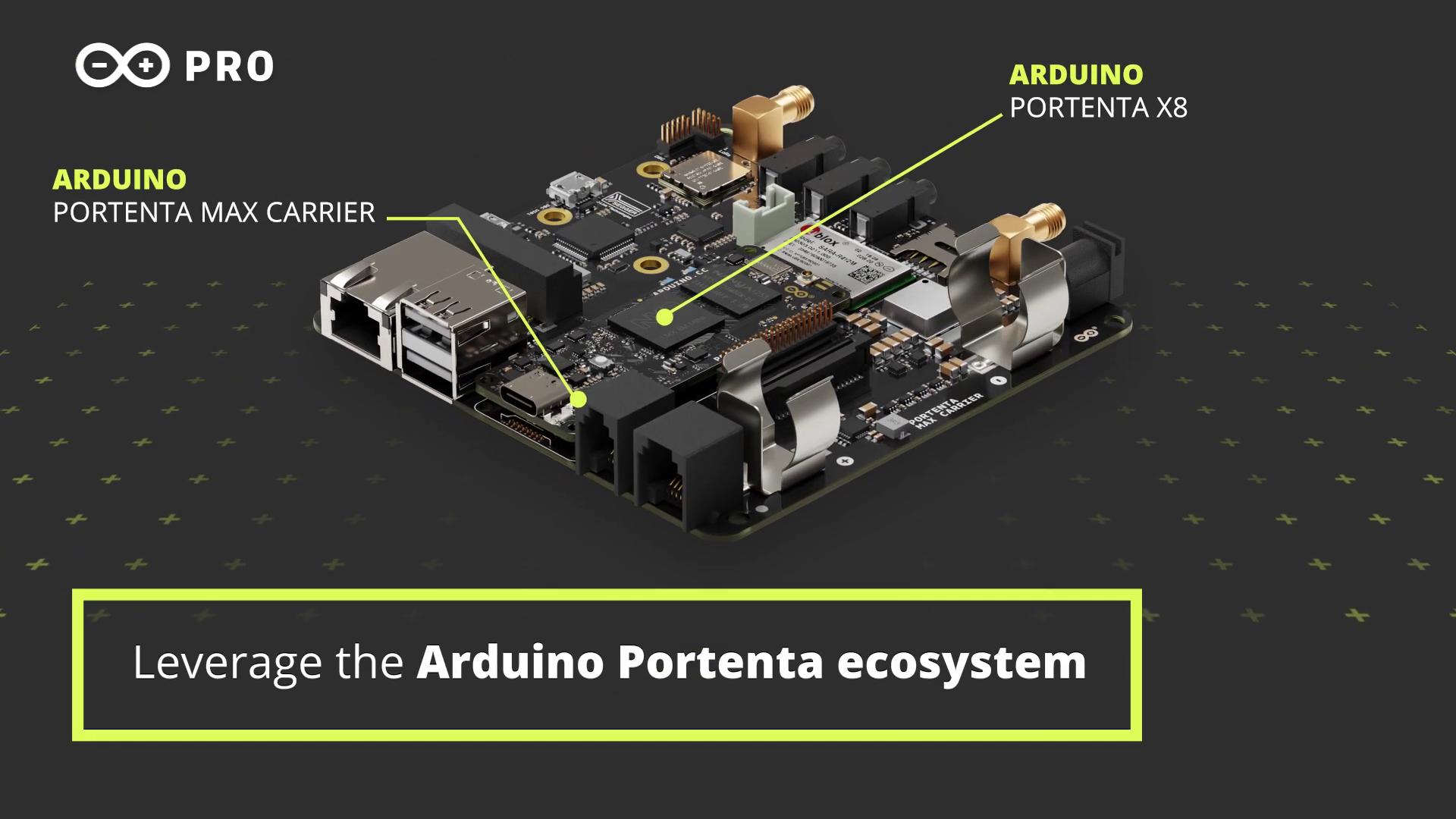
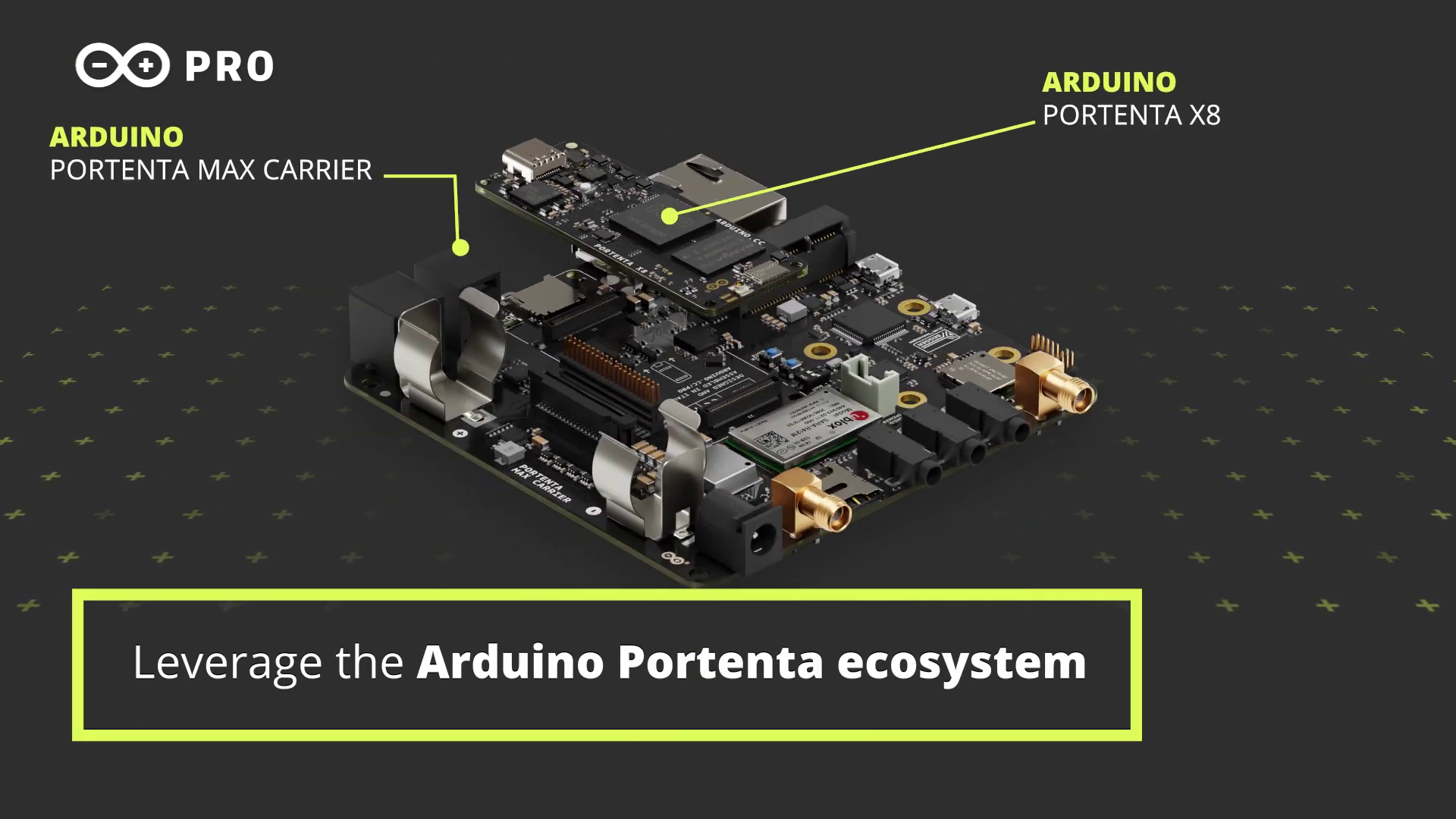
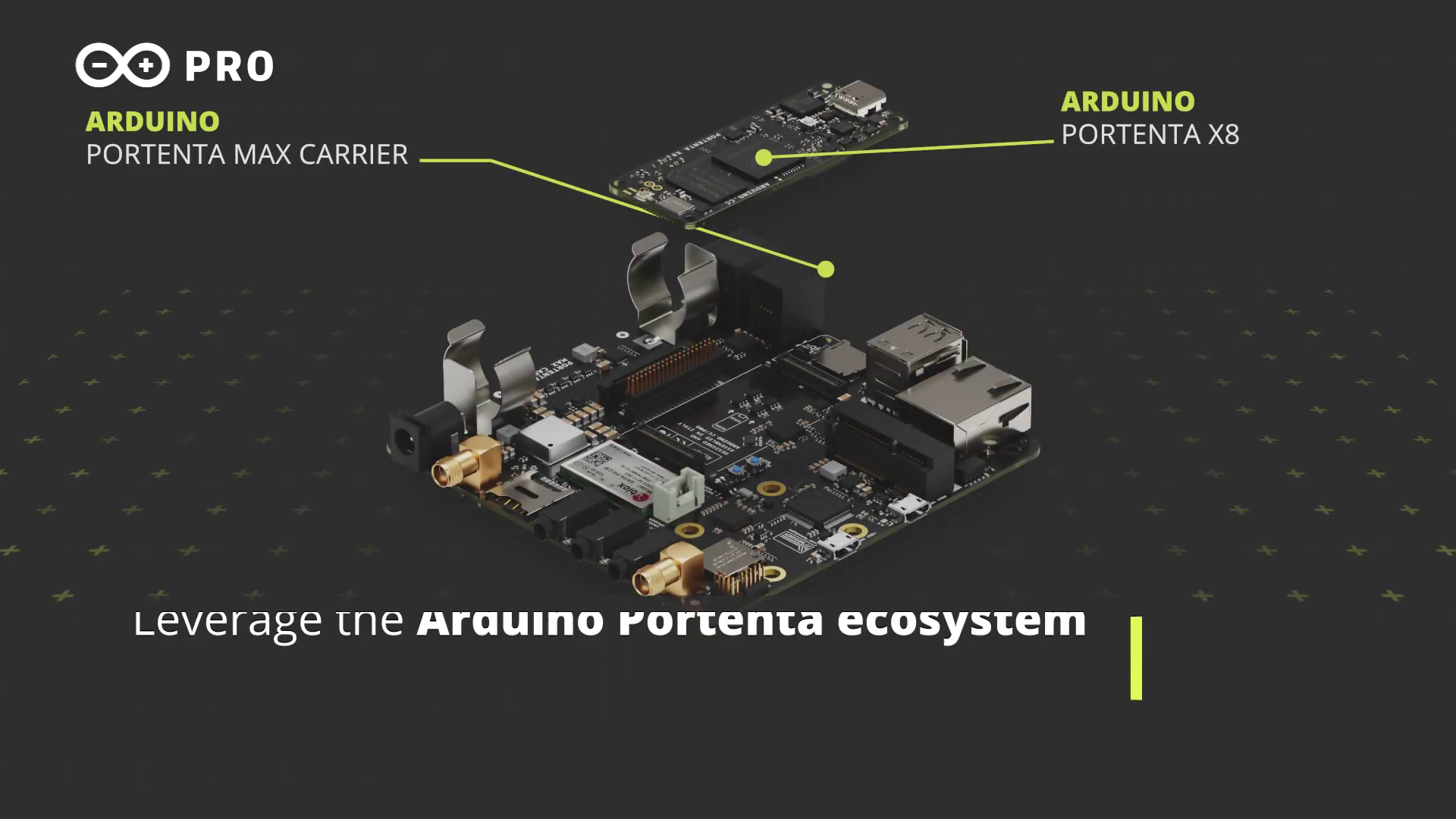
The Portenta Max carrier board shown in the announcement video also features attachments for Wi-Fi antennas, RS485, and what looks like an RJ11 socket, along with a battery holder. Hidden at the rear appears to be a SIM card slot, and we can see a UBlox radio chip which could have some form of cellular connectivity.
Aimed at professional and industrial use rather than being a straight Raspberry Pi alternative, the Portenta comes with Yocto Linux pre-installed, and costs rather a lot even without the carrier board. It features the ability to containerize applications, and can be programmed using Python, Java or Ruby, among other languages. Arduino foresees uses such as edge computing in manufacturing, autonomous vehicles, home control systems, navigation systems for smart agricultural vehicles, and even behavioral analytics for factories and offices.
At the time of writing, the Portenta X8 is sold out on the Arduino store, where it’s priced at $239. The carrier board, at the moment, only seems to exist in the announcement video.
Get Tom's Hardware's best news and in-depth reviews, straight to your inbox.

Ian Evenden is a UK-based news writer for Tom’s Hardware US. He’ll write about anything, but stories about Raspberry Pi and DIY robots seem to find their way to him.
-
Alabalcho ReplyAreshiones said:Why would I spend 240 USD for something I can do with a 10 to 20 USD board?
, with accent on "Industrial" which meansAdmin said:industrial grade board
guaranteed lifetime
extended temp range
various certifications needed here and there
etc -
Areshiones ReplyAlabalcho said:, with accent on "Industrial" which means
guaranteed lifetime
extended temp range
various certifications needed here and there
etc
Why would industry buy this stuff when they can just jump on cheaper SoMs with same or better functionality and certs... I just cannot complain on how far from customers some of the manufacturer are these days...
I would not pay 240 USD !!! for something I can get with half that price... On the other hand, arduino is more for a maker audience, thanks for the effort with accent of "Effort" but nahhh -
Alabalcho Because that "cheaper SoM" wont be available nex year, and you will need to redesign your product, re-cert, retrain support etc etc. And this costs much more that what you have saved.Reply
